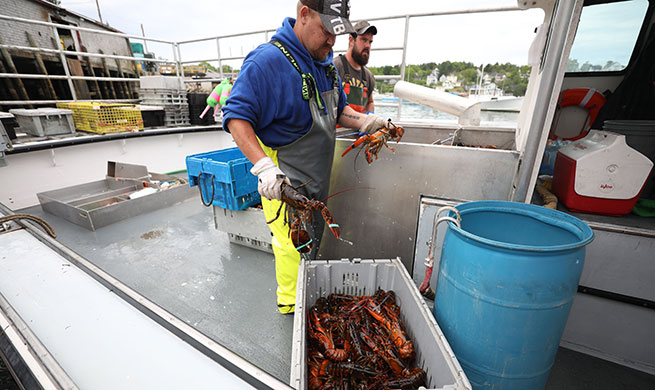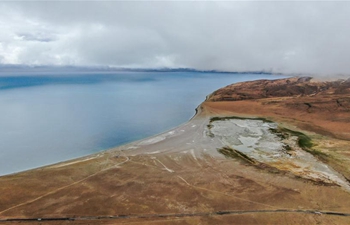LOS ANGELES, Sept. 30 (Xinhua) -- More than one third of coral reefs in the U.S. Pacific island of Guam were killed by rising marine temperatures, according to a recent study on coral breaching.
The study published on scientific journal Coral Reefs indicated that between 2013 and 2017 alone, 34 percent of Guam's coral reefs died as a result of rising temperatures.
There was an alarming 60 percent decline of the reefs along Guam's eastern coast, according to researchers from the University of Guam (UOG).
And the reef deaths, as they said, were never as "severe" as were exposed in the new findings.
Elevated global carbon dioxide output is the major contributor to the increasing water temperatures threatening coral lives, among other factors such as overfishing and pollution, researchers said.
"Our reefs are undergoing very dramatic changes, very suddenly, that haven't been seen in the last 500 years," lead author Laurie Raymundo, who is also a professor of coral ecology at UOG said at a press conference on Guam's reef crisis earlier this week.
"We need to protect what remains and rehabilitate where we can using whatever means we can because they are essential to the island," she stressed.
The U.S. westernmost territory of Guam, with more than 350 known species, is home to one of the most diverse coral reef systems in the country. The reefs not only draw swaths of tourists but also form the lifeline of the region by providing fish habitats and coastal protection against tsunamis.













